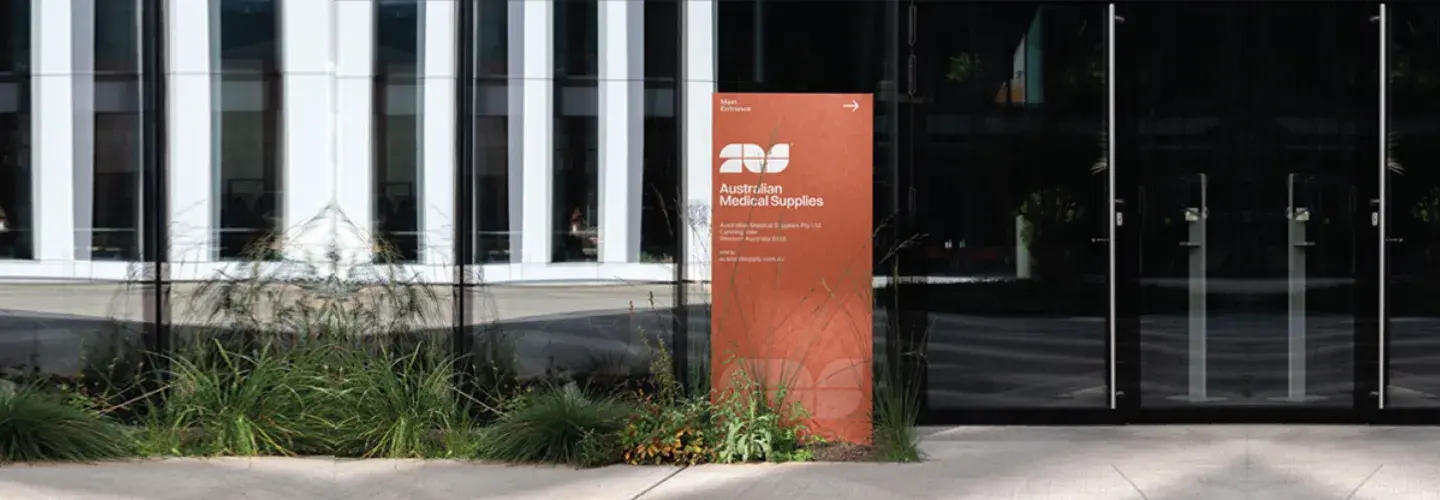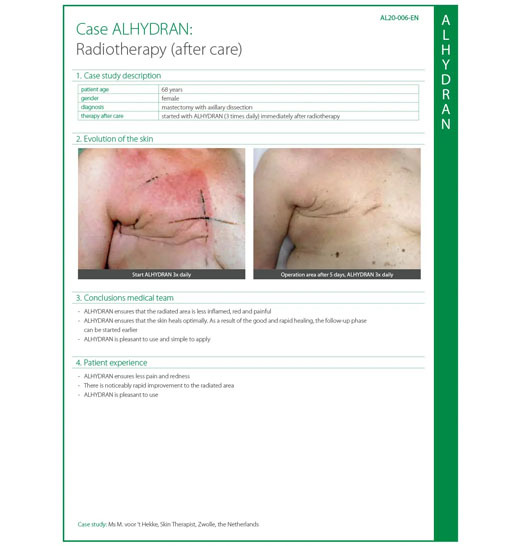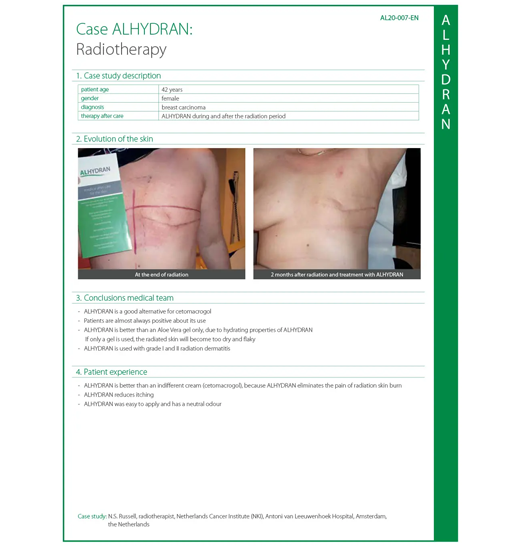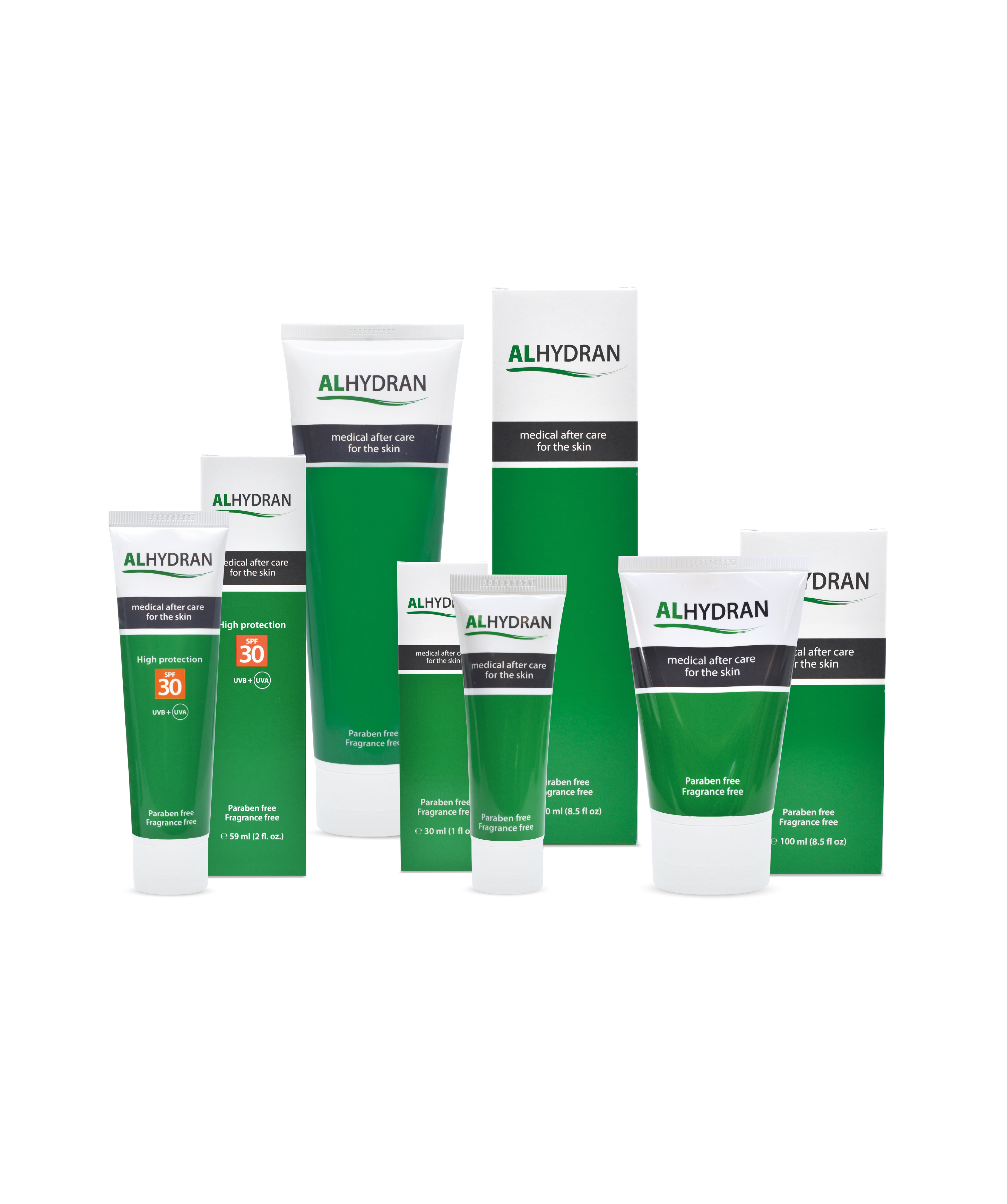Alhydran Medical Cream | Skin Repair for Burns, Scars & Radiotherapy Damage
ALHYDRAN relieves pain, itching and redness fast, making treatment much easier.
Radiotherapy is mostly used in the treatment of cancer. The radiation destroys the cancer cells. The treatment causes skin reactions and unpleasant symptoms. During and after radiotherapy, several skin complaints can arise. These complaints can decrease if you take good care of your skin.
Skin problems caused by radiation
During the course of radiation sessions the skin is damaged and skin problems (radiation dermatitis) can occur at the radiation site:
Redness
Itching
Dry skin (flaking)
Burning sensation
Blisters and wounds may appear
During and after the radiation period ALHYDRAN plays a useful role in treating the delicate irradiated skin. Using a hydrating cream has clinical benefits in the treatment of skin problems.
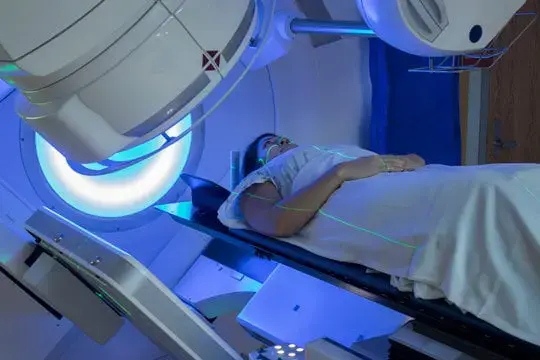
What is Radiotherapy (radiation)?
Radiotherapy (radiation) is a method of treating cancer with radiation. During radiotherapy, cancer cells are damaged in such a way that they cannot recover and die.
Surrounding skin cells that are also irradiated will also be damaged but they generally repair themselves better. If the skin starts repairing itself, that is a sign that it has been damaged. There will often be other symptoms as well, such as redness, itching and dry skin.
Radiation dermatitis:
During the course of radiation sessions the skin is damaged and skin problems (radiation dermatitis) can occur at the radiation site. Initially there will be redness, later on the skin often becomes dry and starts itching and flaking, and a burning sensation develops. Ultimately, blisters and wounds may appear.
Mild skin reactions such as redness, itching and a burning sensation usually appear around two weeks after the first radiation. People with sensitive skin may experience these symptoms earlier. After that the skin reactions will gradually worsen and become more problematic.
Skin reactions and problems generally disappear within four to six weeks after completion of the course of radiotherapy, even if the skin has opened. The dark-red or brown skin discoloration gradually fades, although sometimes leaving the skin a little darker.
Severity of skin problems: (To identify the severity of skin problems after radiation, a grading system has been devised. The higher the grade (0-4) the more severe the skin damage.)
No reaction of the skin.
The skin becomes dry and red, may feel painful and starts to itch.
The skin reaction worsens, and redness and pain increase. Blisters appear. The skin itches more and opens in places.
More blisters and wounds appear. The wound weeps a lot.
After-care for damaged skin.
The skin has to endure a lot of punishment during and after radiotherapy. During the treatment, the irradiated skin gradually becomes more damaged, causing skin reactions and ultimately unpleasant symptoms.
ALHYDRAN cares for this damaged skin. It protects the skin, keeps the skin supple (hydrated), helps relieve symptoms and speeds up the repair of the skin during and after radiotherapy. Using a hydrating cream has clinical benefits in the treatment of radiation dermatitis.
ALHYDRAN is a long-lasting and highly effective hydrating product. The cream is made from natural ingredients, with no added fragrances or metallic components such as zinc. It is pleasant to use, easy to apply to delicate skin and relieves symptoms fast. Because ALHYDRAN spreads easily, it is easy and painless to apply to irradiated skin. It is absorbed easily into the skin so there is no need to clean the skin additionally during radiation sessions.
ALHYDRAN relieves pain, itching and redness fast, making treatment much easier.
